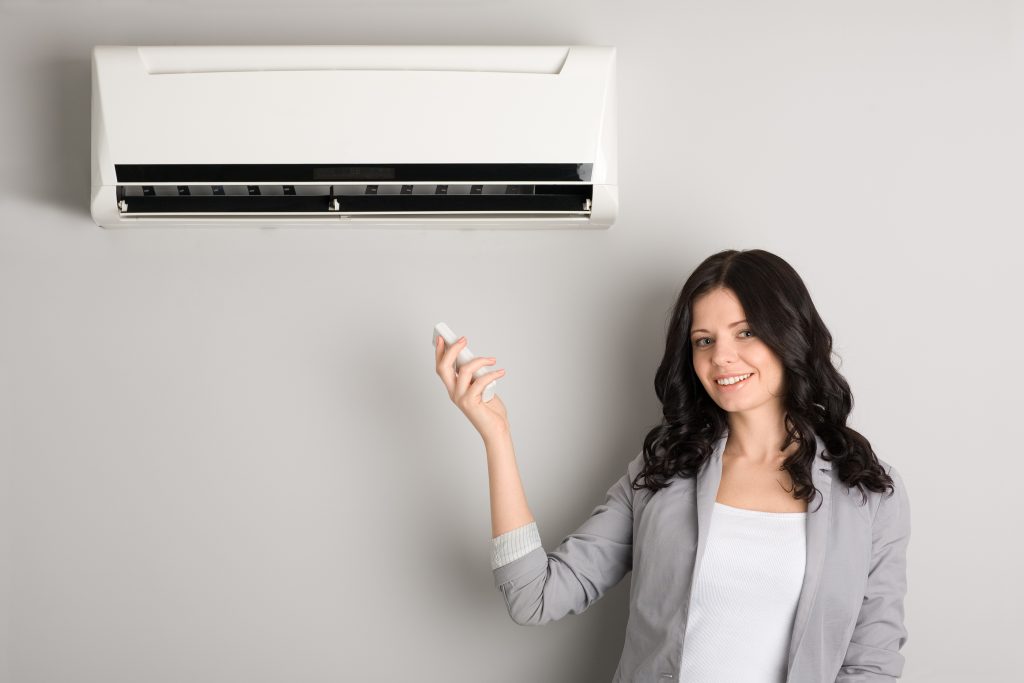Do Air Conditioners Dehumidify?
When your air conditioner starts kicking on for the summer, you’ll obviously notice that the air in your home cools down. You may also notice that the humidity in the air, that comes along with summer heat, dissipates, as well. That’s because your air conditioner is set up to control both the temperature and the humidity. Moisture and condensation collects on a coil in the air conditioning unit as it runs, and drips into a pan below where it drains out, thereby taking the moisture out of the air.

If you start to notice that the air in your home is increasingly warm and sticky, it may be a sign that there’s an issue.
What Impacts an AC’s Ability to Dehumidify?
There are several factors that may impact an air conditioner’s ability to dehumidify the air. In some cases, especially in places with higher humidity, an air conditioner may not be sufficient to keep humid air out of the house. If, for instance, your air conditioning unit is too small, it won’t be able to adequately dehumidify a home. Conversely, if the unit is too large, it may end up cooling off the room or home too quickly, and turn off. When this happens, it doesn’t remove all of the moisture out of the air, leaving humid, sticky air. The air filter in your air conditioner may also play a role in terms of dehumidifying the air. If it’s old and dirty, it may restrict the air flowing into the unit. This will also limit the amount of moisture removed from the air.
As strange as it may sound, having a well-insulated, energy-efficient home can also be a problem for keeping moisture at bay. The better insulated your home is, the less your air conditioner will need to be on, which ostensibly sounds like a good thing. In terms of pulling moisture out of the air, however, it’s anything but. If your home is not actively cooling, there’s nothing running to pull the moisture out of the air, leading to humid air in the home. Using a dehumidifier to compliment your air conditioning unit may be a well-balanced way to target this problem.
Do You Need a Whole-home Dehumidifier?
Relying on your air conditioning unit to dehumidify the air can be costly. For instance, even if the temperature feels fine, you may need to turn it down in order to dehumidify the air. That will cost you more per month on your electric bill. While there will be an initial cost with a whole-home dehumidifier, it’ll cost less in the long run, as it uses less energy to take the moisture out of the air. Your air conditioner may need an ally in order to keep the house dry and free of humid air. The less humid the air in your home is, the less likely there will be damage due to mold or musty odors that sometimes come with humid conditions. Your home may also be less likely to be impacted by dust mites and other home allergens, thereby keeping your family safer and healthier.
Mold can be even worse for a home and health in general. It thrives in moist, humid environments. Having your home dehumidified can greatly reduce the chances of mold taking hold.
While an air conditioning unit is set-up to remove humidity from the air, having an AC unit and a dehumidifier working in tandem may be the way to go, especially in hot, humid areas. This will keep your home free from moisture and all of the issues that may arise from it.
Have an HVAC professional address your need for a dehumidifier
Using air conditioning and dehumidifying systems in tandem is a great way to keep your home comfortable and safe. If you’re experiencing any issues with humidity in your home, call the Fredericksburg area experts at Robert B. Payne, Inc. Schedule an appointment today at (540) 373-5876.

